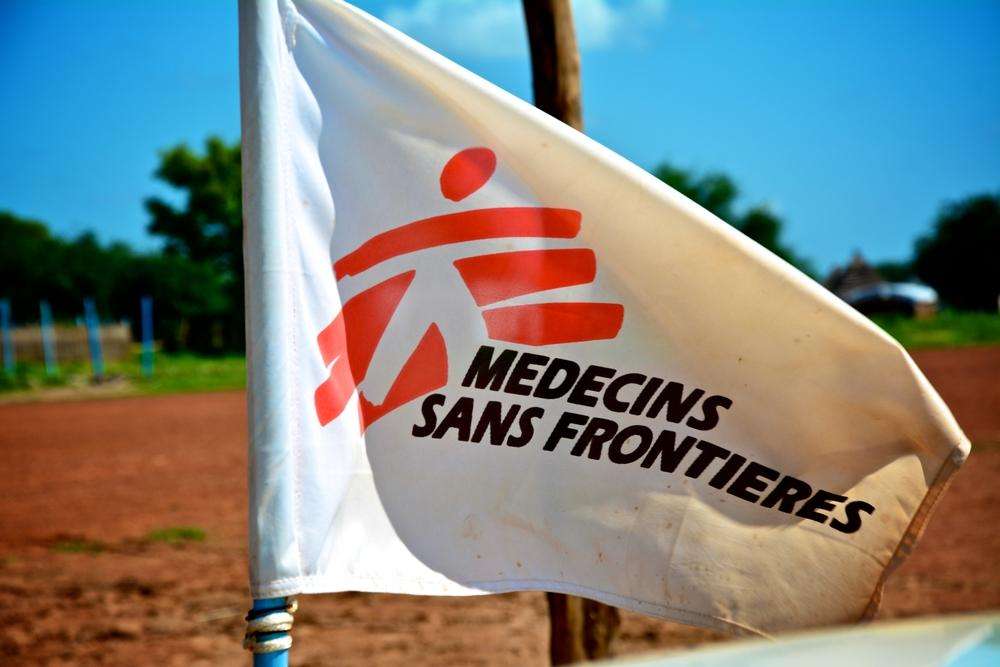The problem of malnutrition in Pakistan, especially among children under five years old, is an issue of serious concern. A Doctors Without Borders/Médecins Sans Frontières (MSF) team running the malnutrition project in Dera Murad Jamali, Baluchistan, has observed that a lack of breastfeeding, unsafe drinking water, and unhygienic practices are some of the primary causes behind the high levels of malnutrition. Eunice Wanjiru Gathiaka, MSF medical team leader in Dera Murad Jamali, describes the conditions that lead to such high rates of malnutrition, and how her team is approaching the problem of educating parents in this region of Pakistan.
Can you explain what malnutrition is?
Malnutrition is an imbalance between the body’s nutrient requirement and its intake. There are two main categories of malnutrition generally observed in children: marasmus and kwashiorkor. Marasmus is a form of severe malnutrition characterized by energy deficiency due to inadequate caloric intake, while kwashiorkor is protein deficiency despite adequate energy intake. With marasmus the child is wasted and thins out while with kwashiorkor, the body swells due to a lack of protein. In Pakistan, most of children suffer from marasmus. Malnutrition also makes children prone to disease.
What is the situation with malnutrition in Pakistan, especially in Dera Murad Jamali?
Malnutrition is one of the major child health issues in Pakistan. According to the Pakistan Demographic and Health Survey 2012–13, around 45 percent of children show evidence of chronic malnutrition or stunting and 11 percent are acutely malnourished and require urgent treatment. In the districts of Naseerabad and Jaffarabad, of around 19,138 children screened on our three locations, 2,259 were severely malnourished. That’s equal to over 11 percent. This ratio is alarming, and the concern is that the number is increasing every day.
Why is there such a high incidence of malnutrition?
It is important to note that there is no food insecurity in this area. Food is easily accessible, although affordability is a concern. The issue is a combination of socio-economic and cultural reasons. Low income, lack of access to health facilities, unhygienic practices, poor health seeking behavior, and unsafe water are some main causes of malnutrition in the area. This is compounded by a poor uptake in breastfeeding.
Read: “I suddenly found myself treating my own premature triplets”
How important is breastfeeding?
Very important. Medically exclusive breastfeeding is recommended for newborns for the first six months. Breast milk is a safe and balanced diet, with zero contaminants. It’s the right temperature and has anti-bodies, which help the child’s body fight against infection. The process of breastfeeding also enhances bonding between the mother and child. If a child is not breastfed, their immunity against disease is compromised. Things like black tea, herbs, honey, or goat or formula milk can never compensate for lack of breast milk.
Why there is no culture of proper breastfeeding?
Even if mothers breastfeed their children, it is not properly done or done enough. There is a lack of awareness about the importance of breast milk. Due to large family sizes, children often don’t get enough care. We also observe a widespread misconception that colostrum—the first pale yellow milk of the mother—is not good for the child. There are also practices of giving black tea, herbs, and powdered milk to newborn babies.
What is MSF doing to combat malnutrition in Dera Murad Jamali?
In 2008, MSF began working in the eastern districts of Jaffarabad and Naseerabad, primarily supporting nutrition programs for children under five years old in the District Headquarters Hospital in Dera Murad Jamali through a network of mobile clinics and outreach sites. MSF teams support inpatient therapeutic feeding for complicated malnourished children, as well as an ambulatory therapeutic feeding program, which provides essential medical care to more than 10,000 children annually. MSF’s objective is to improve access to the provision of quality nutritional support to severely malnourished children and lactating mothers.
How does MSF plan to build on these projects?
It has been observed that many children become malnourished again after treatment. This is because their families continue poor health practices. We want to break this vicious circle, so we are also strengthening the preventive component of the project through health promotion activities. These raise awareness about best health practices at a community level, so that the issue is addressed at the root.




